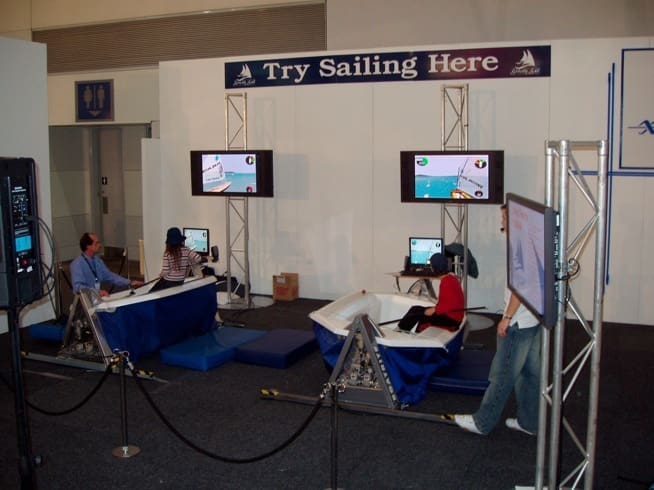Evidently sailing simulators are not only fun and instructive, they can help people who have suffered spinal cord injuries. Researchers at the Kennedy Krieger Institute, which assists children and adolescents with brain, spinal cord and musculoskeletal disabilities, have determined in a pilot study that using a virtual therapeutic sailing simulator for patients that had suffered spinal cord injury helped them with their rehabilitation.
As Baltimore-based Kennedy Krieger stated in a recent press release: "…findings show that using a hands-on sailing simulator over a 12-week period helped participants safely learn sailing skills in a controlled environment, ultimately improving their quality of life by gaining the ability to participate in a recreational sport.
"For many individuals living with paralysis, participation in recreational sports may seem impossible or even unimportant. This study is one of the first to scientifically quantify the positive impact of therapeutic sailing following a spinal cord injury, including a significant increase in overall self-confidence and sense of accomplishment among participants."
The people who participated in the research had "chronic spinal cord injuries that occurred more than six months" prior to the study and had no previous sailing experience. They used the simulator for one hour a week for a period of 12 weeks. The simulator is called the Virtual Sailing VSail-Trainer, which is a sailing simulator specifically designed for people with paralysis.
"The stationary, motorized sailboat cockpit features specialized software that enables patients to navigate the boat around a virtual course in the same way as an actual sailboat in the water. Electronic sensors give the participant real-time feedback that matches their movements and allows them to control wind strength and water conditions.
"The results of the research effort showed that:
• All participants demonstrated rapid and substantial improvement in their sailing scores.
• All patients showed a significant positive increase in overall quality of life, including increased self-confidence and sense of accomplishment.
• Following completion of the training program, all subjects were able to successfully sail and perform specific maneuvers on the water at a sailing center in Baltimore, Md.
"This study was supported by the Kennedy Krieger Institute‘s International Center for Spinal Cord Injury, the Johns Hopkins University and the University of Melbourne, Australia."

